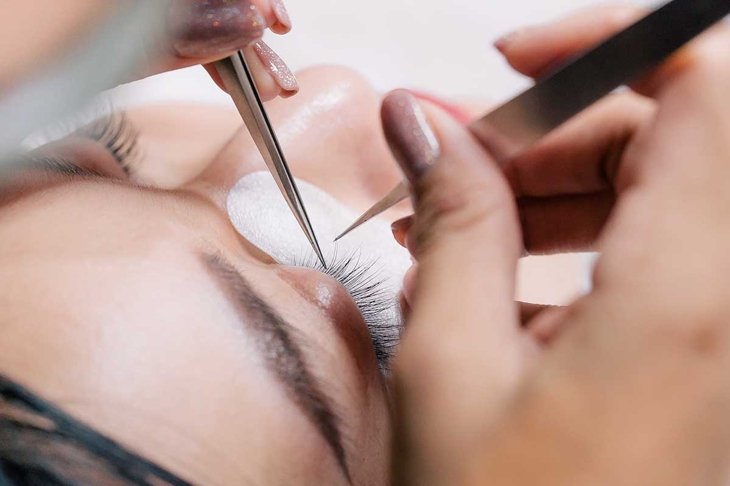
Long and luxurious eyelashes have been beauty staples for centuries. Whether it’s mascara, temporary lashes, or eyelash curlers, we are always finding ways to enhance our lashes.
Semi-permanent eyelash extensions are rapidly growing in popularity thanks to their longevity and appearance. People pay top dollar for an aesthetician to glue synthetic, silk, or mink lashes one by one, creating a natural and full-looking eyelash. These extensions can last several weeks.
However, if you’re pondering the enhancement, there are some things to consider from a health perspective.
01
Overall safety
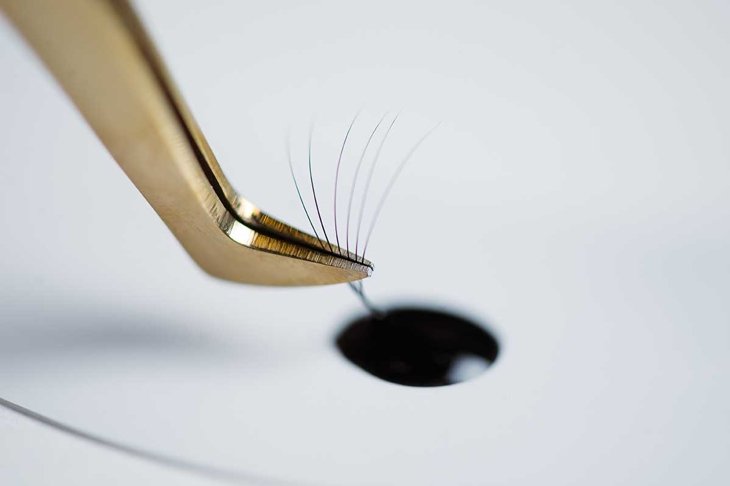
Eyelash extensions are usually safe, assuming an experienced and qualified aesthetician applies them in a clean environment. However, the procedure does have a few inherent risks.
Some people are allergic to ingredients in eyelash glue. Trauma to the eyelid or the eye is common because the area is so sensitive. Infections are also possible if the technician’s hands or the environment is dirty.
02
Who should avoid lash extensions
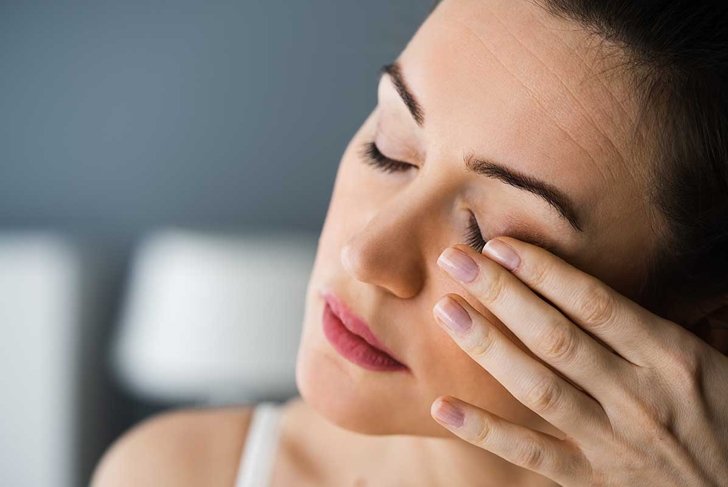
Some people are simply not good candidates for eyelash extensions. In many cases, this is due to an underlying condition. Individuals with pink eye, styes, herpes in the eye area, alopecia, trichotillomania, or blepharitis should not get eyelash extensions.
Additionally, people with a history of reactions to skin products, makeup, or eye medications are more likely to be allergic to the glue. Anyone who has recently received laser eye surgery or is currently undergoing chemotherapy or radiation should also pass on eyelash extensions.
03
Possible trauma and damage
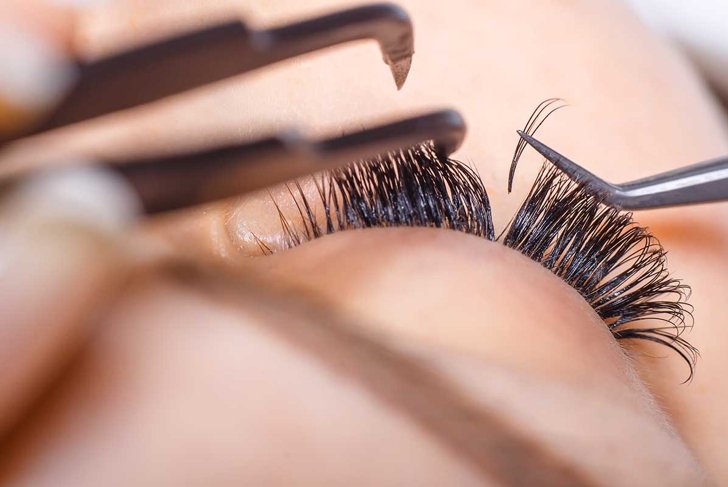
During the procedure, the technician will be using sharp objects very close to the eyes. This, along with the eyelashes themselves, can potentially damage the eyes or eyelids.
Scratches in this region, however small, lead to pain, redness, headaches, and light sensitivity. Severe damage may even result in vision loss. These injuries may also develop infections. In rare cases, fibers from the extensions become stuck under the eye tissue, requiring surgical removal.
04
Ingredients and potential allergies
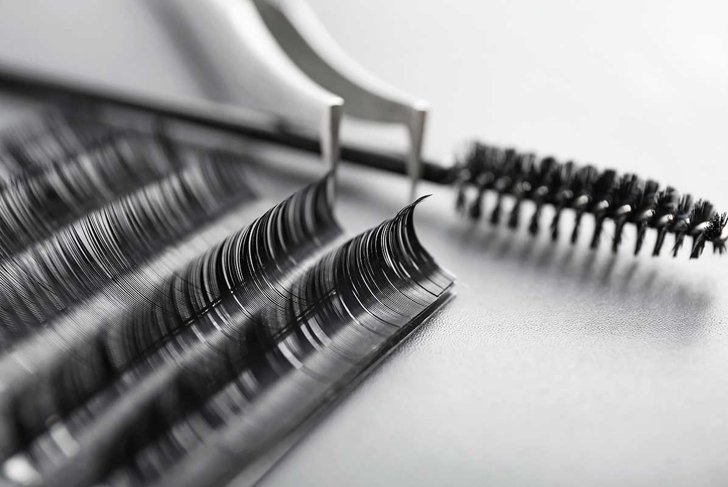
While reputable salons and shops use high-quality extensions and glue, government bodies do not typically regulate these products. This means that some products could contain compounds or ingredients that can damage the eyes or trigger allergic reactions.
In the past, some glues contained formaldehyde. Research salons and their products thoroughly before selecting one for your extensions. Experts recommend asking a salon if you can pop in for a spot test on the inside of your wrist to check for any allergies.
05
Professional vs. home application
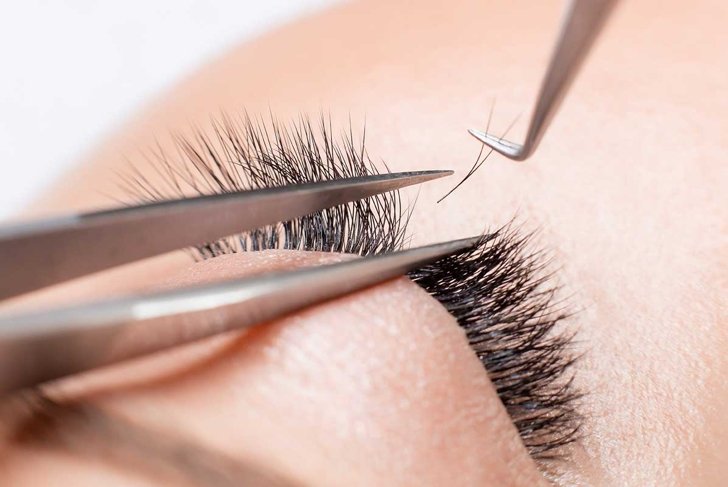
Professional applications are usually safe, especially in areas where technicians need certifications to perform the procedure. However, many brands offer home application kits for eyelash extensions. These are far less safe.
Both eyes remain closed for the duration of a professional application, which limits the potential damage. If you apply the extensions yourself, at least one eye must remain open and the procedure is far more likely to result in trauma.
06
Effects on natural lashes
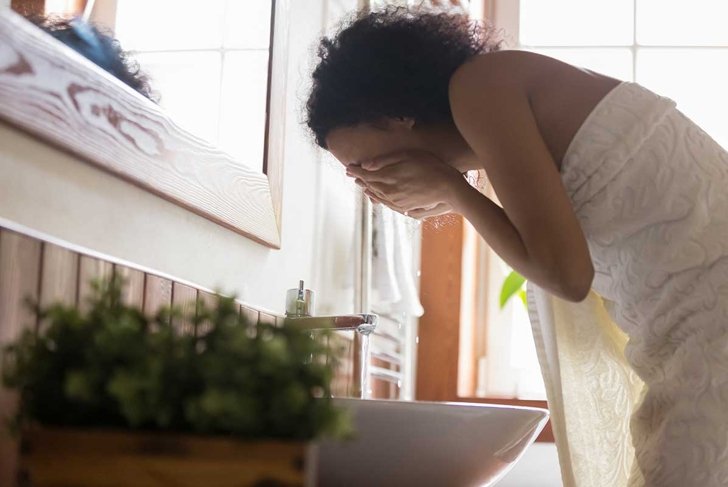
Many people worry about the effects that semi-permanent eyelash extensions have on their natural eyelashes. Like the procedure itself, most people have no issues. However, actions like rubbing the eyes or pulling on the eyelashes can tear a person’s natural lashes. In some cases, they may even permanently damage the eyelash follicle.
Even with perfect care, the weight of the extensions may cause natural eyelashes to become straighter, though this appears to be temporary. Once the old eyelashes shed and new ones grow in, they will return to their natural shape.
07
Eyelash extensions, contacts, and glasses
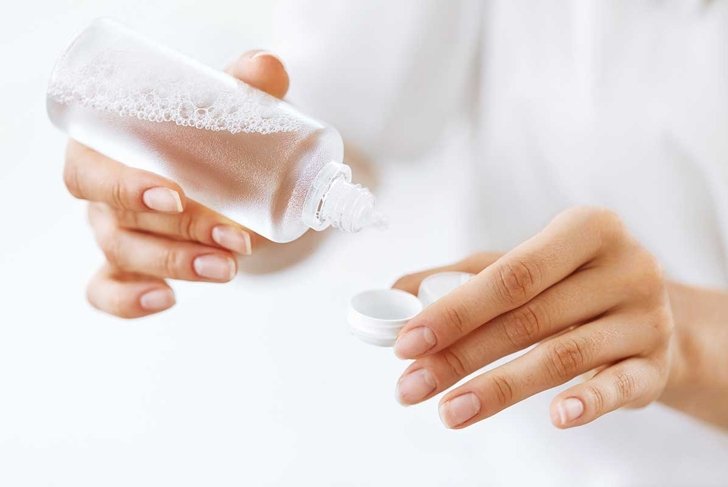
People who wear glasses or contacts can still get eyelash extensions. While it is usually safe to wear contacts during the procedure, most experts advise removing them to prevent dry or sore eyes. Some salons in metropolitan areas will provide customers with disposable cases and eye drops to make removal simple.
When inserting contacts after the procedure, be extremely careful to not pull the extensions themselves. Individuals who plan to wear glasses along with their extensions should mention this to their aesthetician. Usually, the technician will trim the extensions slightly so they do not rub against the lenses.
08
Cluster lashes vs. single lash
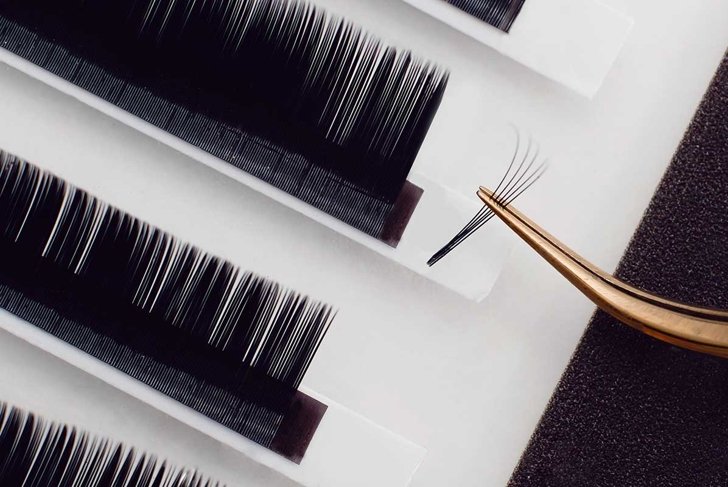
Many lower-cost salons offer cluster lashes as an alternative to single lash extensions. Rather than applying a single lash at a time, the clinician uses fan-shaped clusters of eyelashes. This speeds up application time and can result in a very full-looking eyelash.
However, cluster lashes are more dangerous than single lashes and most experts agree that customers should avoid them. Cluster lashes are much heavier than single lashes and typically result in permanent natural eyelash damage. Their weight can even affect the eyelid itself. Cluster lashes also tend to shed in clumps and require significantly more glue, increasing the risks of irritation or infection.
09
Finding a good technician
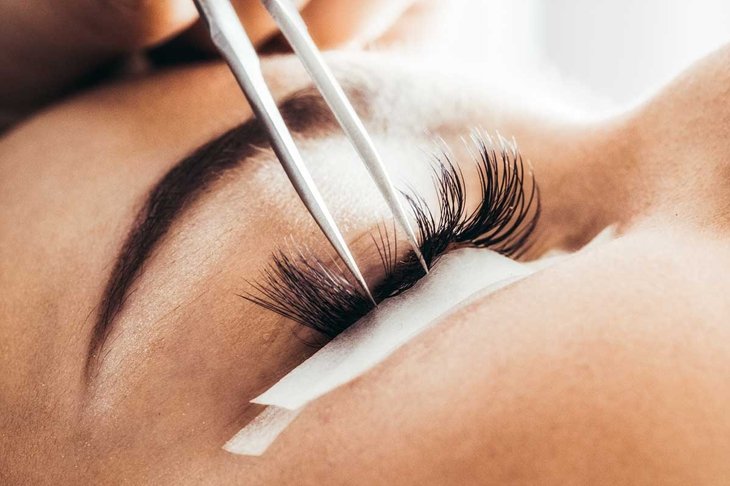
The best way to ensure the safe application of eyelash extensions is to find a qualified aesthetician at a reputable store. Some things to look out for and ask:
- Does the salon have a positive reputation?
- Has the salon been in business for a significant amount of time?
- Are there trustworthy reviews of the salon?
- Does the salon seem hygienic?
- Does the technician practice good hygiene before, during, and after procedures?
- Are the technicians trained, certified, and experienced?
10
Safely maintaining lash extensions
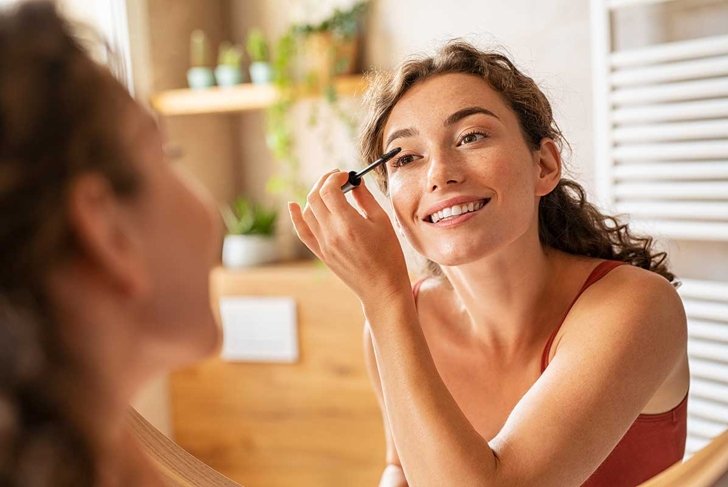
After the procedure, most issues like infections or damage stem from poor aftercare. Understanding how to care for the extensions ensures their longevity and prevents possible complications.
Avoid using oil-based facial products that can break down the glue. Do not use mascara with eyelash extensions. Prevent water from splashing directly on the lashes while bathing or washing, and try not to rub them with a towel.





























